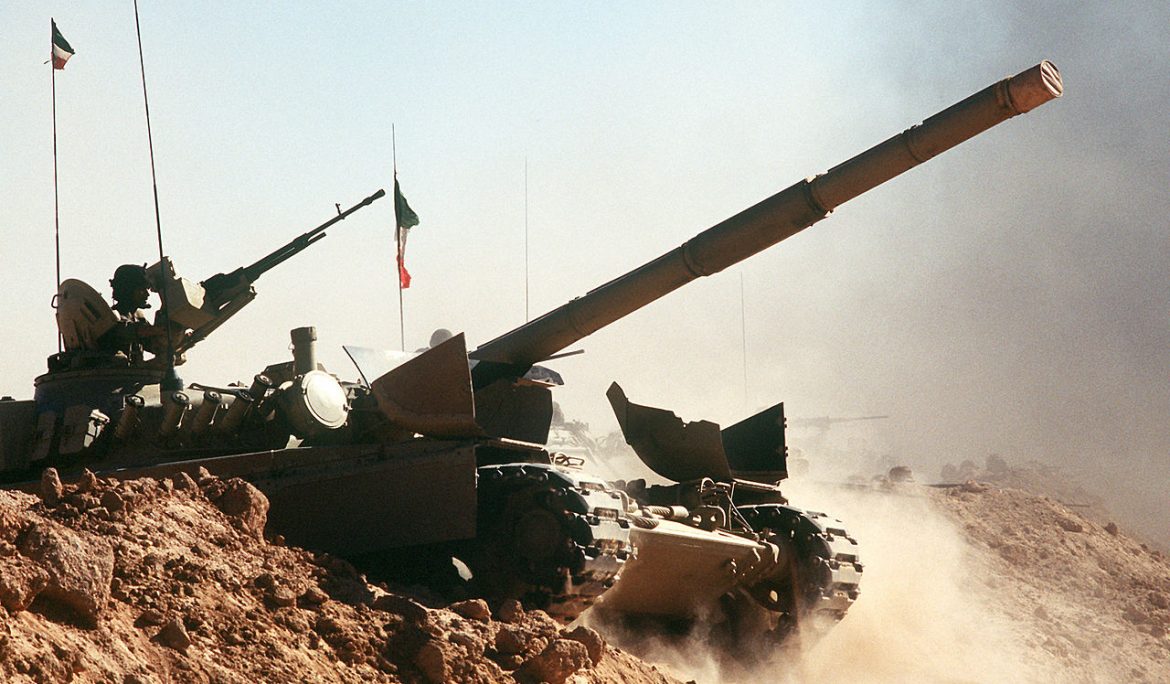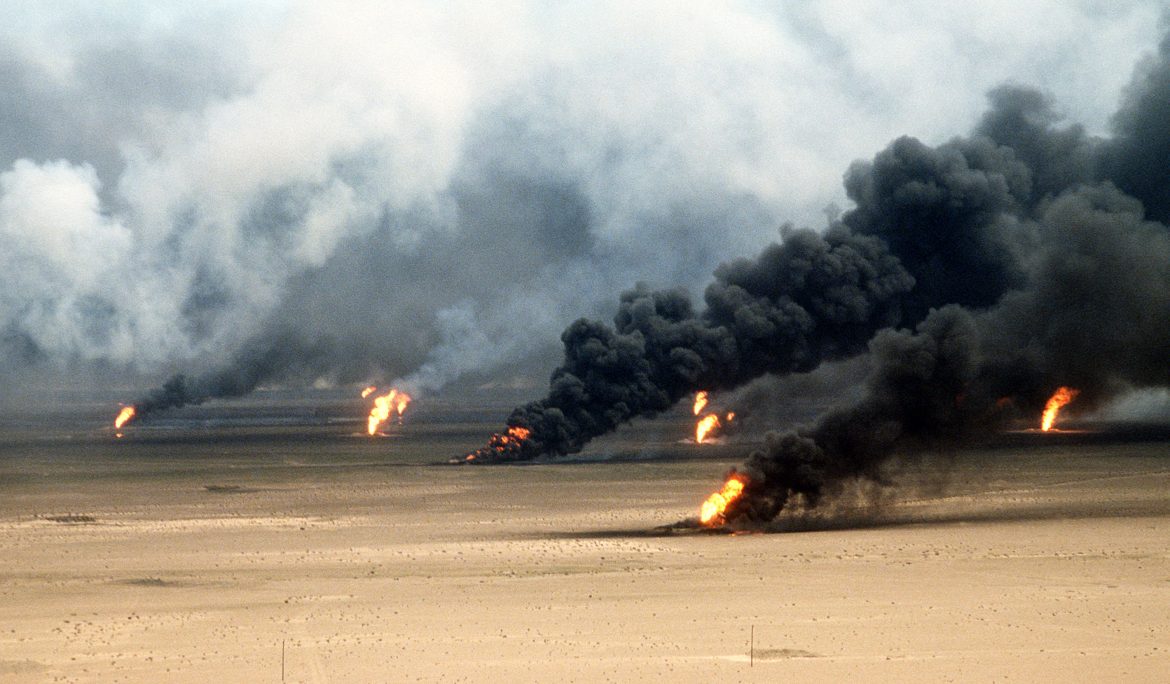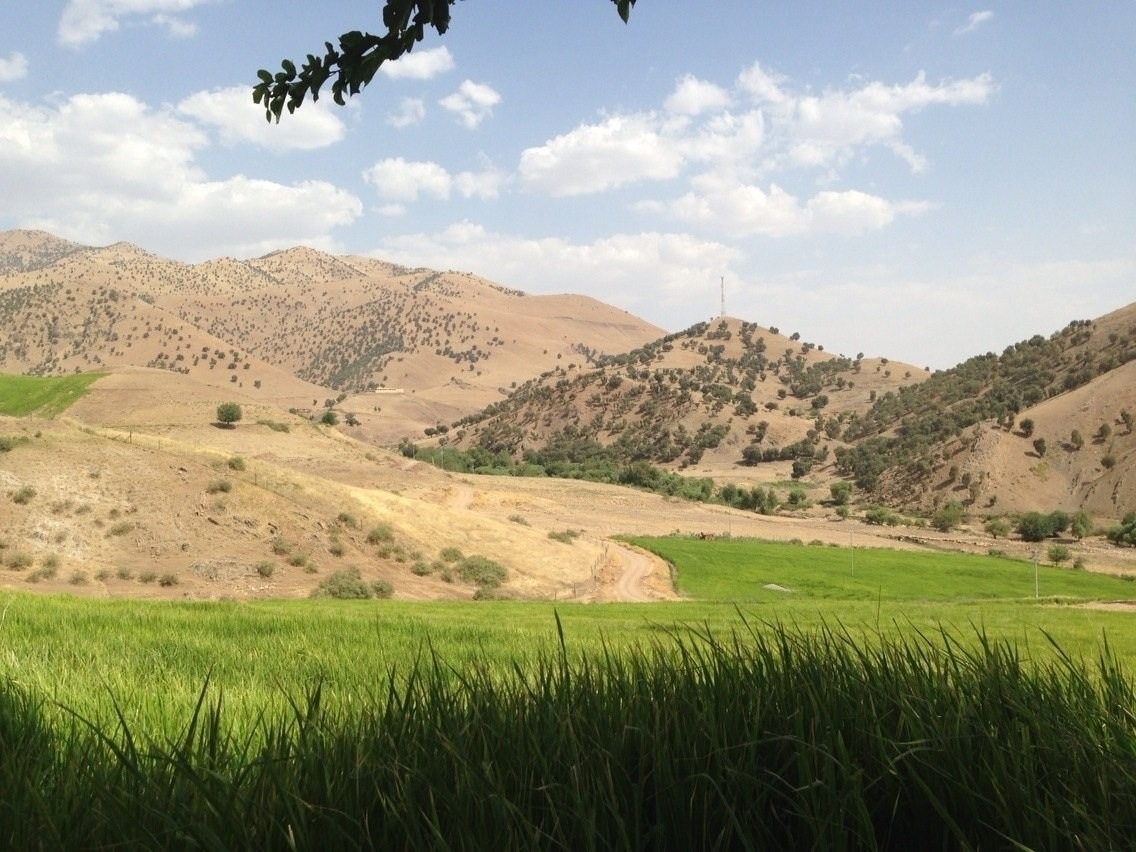Allegations of Iranian Use of Chemical Weapons in the 1980–88 Gulf War – Introduction
Allegations that Iran is a chemical weapon (CW) proliferator originated in part with claims that it had used CW during the 1980–88 Iran–Iraq war. Iraq was the principal user of CW during the war. According to Iranian accounts, the first chemical attacks began in January 1981, but independent reports were not published until one and a half years later. Iraqi chemical attacks definitely escalated during the second half of 1983, which eventually led to the first of several investigatory missions organised by UN Secretary-General Javier Pérez de Cuellar in March 1984. Despite the overwhelming evidence of chemical warfare, confirmed by …
Allegations of Iranian Use of Chemical Weapons in the 1980–88 Gulf War – Iran’s defensive preparations
In the 1980–88 Gulf War Iraq repeatedly attacked Iran with chemical weapons (CW). At the beginning of the war both countries were contracting parties to the Geneva Protocol. According to Iranian statements, the first Iraqi CW attack occurred in January 1981.[1] One of the first independent news reports appeared in August 1982.[2] Iraq gradually integrated CW into its defensive and offensive military operations. Initially Iran appears to have been totally unprepared for military operations in a chemical environment. Throughout the war Iranian troops remained poorly protected and, in the light of the missile war against cities, the country would have …
Allegations of Iranian Use of Chemical Weapons in the 1980–88 Gulf War – Iran’s offensive preparations
Two factors definitely contributed to the change in Iran’s views on chemical warfare: the systematic Iraqi attacks with CW from 1983 onwards and the lack of response from the international community for the Iraqi violations of international law. Iran’s chemical weapons (CW) armament programme started late into the war. Such a programme is complex and involves many phases, including research and development, setting up a production base, weaponisation, offensive and defensive doctrine development, establishment of logistics and operational support, training, and protection and defence. Consequently, Iran cannot be expected to have developed an advanced chemical warfare capability before the cease-fire …
Allegations of Iranian Use of Chemical Weapons in the 1980–88 Gulf War – Halabja
In the period of 16–18 March 1988 Halabja and its surroundings were attacked with chemical weapons (CW). According to Iranian figures, there were 12,500 casualties, including more than 5,500 fatalities.[1] A Kurdish researcher later concluded that at least 3200 residents are known to have died.[2] It is impossible to reconstruct exactly the events in and around Halabja. Nevertheless, it is widely accepted that the Iraqi military forces were solely responsible for the attack against a civilian target. Yet, shortly after the events sources in the United States began to hint that Iranian troops might have actually killed the majority of …
Roundtable invitation: Syria’s Chemical Demilitarization
INVITATION Syria’s Chemical Demilitarization: Progress, Challenges, and Lessons A Roundtable Discussion with Dr. Paul F. Walker, Amb. Serguei Batsanov, Dr. Ralf Trapp, & Dr. Jean Pascal Zanders Introductory Remarks by Dr. Alexander Likhotal Organized by Green Cross International, Pugwash Conferences on Science and World Affairs, and the Chemical Weapons Convention Coalition Monday, May 19, 2014, 17:00-19:00 WMO Building, 7 bis avenue de la Paix, 2d floor Vieira de Mello auditorium Syria’s accession to the Chemical Weapons Convention (CWC) in September 2013 made it the 190th State Party to the Convention with only six countries now remaining outside the treaty regime. …
Must the Belgian babies be bayoneted all over again?
August, 100 years ago: the Hun from the east invaded little, neutral Belgium. In the opening weeks of the campaign the Hun was not a good boy. He wilfully executed civilians, raped women, destroyed historical monuments and burned down university libraries—all war crimes that have been extensively documented. The worst barbarian acts, however, he committed against babies. He cut off their hands, so that the grownup man could never take up arms against the Hunnic master. Worse, he tossed them in the air and caught them on his bayonet. Alas, each investigated claim proved to be a myth. Meanwhile, many …
The Nuclear Nonproliferation Regime at a Crossroads
Memorandum No. 137, Tel Aviv: Institute for National Security Studies, May 2014 Editors: Emily B. Landau , Azriel Bermant The articles compiled in this volume grapple with questions and dilemmas that arise from a growing sense in recent years that the Nuclear Non-Proliferation Treaty (NPT) has reached a critical juncture, and that its continued role as the centerpiece of the nuclear nonproliferation regime is at risk. This is the result of a process that has unfolded gradually since the end of the Cold War, which also spelled the end of the bipolar global structure that, in the minds of many, …
Threat posed by Islamic State’s capture of Iraq’s Muthanna CW site
In a letter dated 7 July 2014 Iraqi Ambassador to the United Nations Mohamed Ali Alhakim notified UN Secretary-General Ban Ki-moon that ‘armed terrorist groups’ had entered the Muthanna complex on 11 June. The next morning a project manager observed them looting of some equipment via the camera surveillance system before the ‘terrorists’ disabled it. The document, as cited by the Associated Press, explicitly referred to the capture of bunkers 13 and 41, two locations still holding chemical weapons (CW) so severely damaged during the 1991 war to liberate Kuwait that until today they could not be disposed of in …
Engaging Israel on CWC Ratification – Part 1: Outsider Perspectives
The Israeli Disarmament Movement together with the Chemical Weapons Convention Coalition (CWCC) and Green Cross convened two days of roundtable discussions on Chemical Weapons, Israel and the Middle East in Tel Aviv. The third day, 12 November, a briefing was held in the Knesset. In a region where (existential) security and the nuclear weapons stand central to any debate on arms control strategies, the exclusive focus on chemical weapons (CW) was a rare occurrence. The meeting goals were twofold: promote ratification of the Chemical Weapons Convention (CWC) by Israel and to have Israel take a more positive stance in the …
Chemical weapons in the Middle East remain sensitive
On 4 December I addressed a workshop on Nuclear Safety, Security and WMD Non-proliferation. The event was organised by Atomic Reporters and the Vienna Center for Disarmament and Non-Proliferation (VCDNP), together with the Stanley Foundation and the James Martin Center for Nonproliferation Studies (CNS). The target audience consisted of more than 20 journalists from or working in the Middle East. My presentation ‘Responding to chemical weapon use in Syria’ addressed the allegations of chemical weapon (CW) use in Syria since early 2013 and the international CW disarmament operation over the past 15 months. The audience’s reactions at times illustrated how sensitive …



